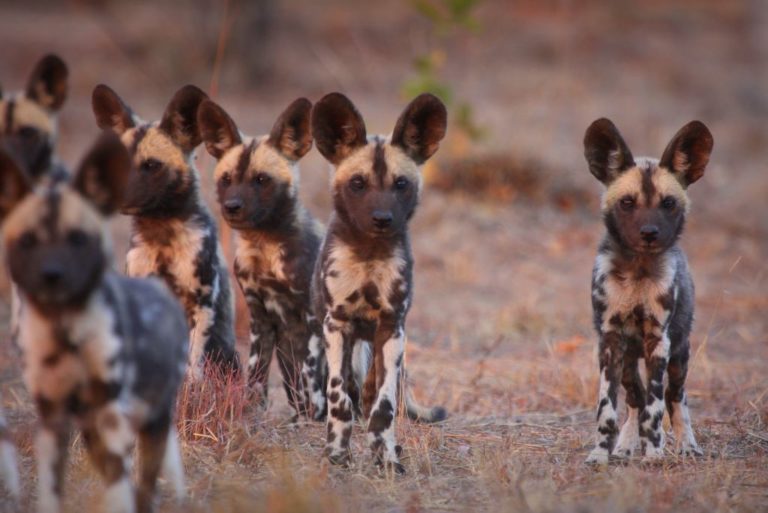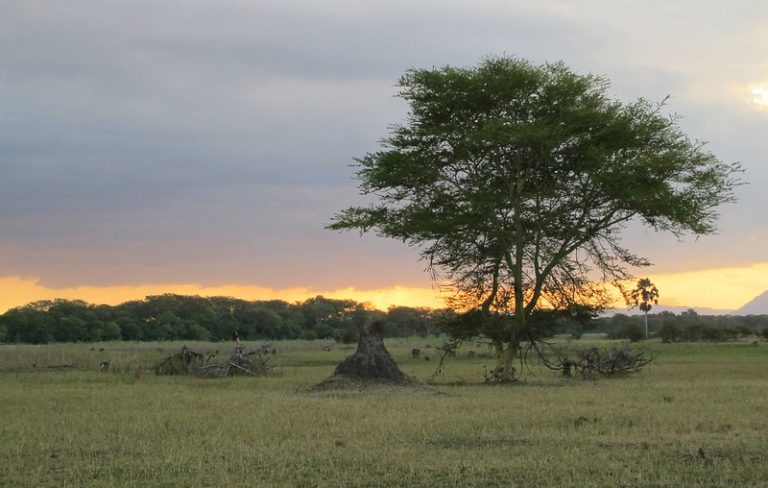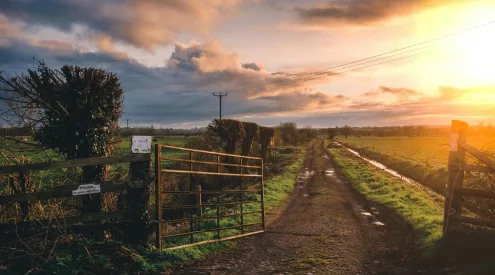Having not roamed the Malawian landscape for decades, 14 African wild dogs were couriered over land and air to be reintroduced to Malawi’s Liwonde National Park and Majete Wildlife Reserve, The Guardian reports.

After the long journey, the wild dogs were reported as ‘awake and hungry’ on 27 July 2021, as they surrounded an impala carcass. This was a surreal and emotional moment for Cole du Plessis, coordinator of the Wild Dog Expansion project, who had seen the relocation of the 14 wild dogs from Mozambique and South Africa.
‘It was a 27-hour journey that saw obstacles and rescheduling due to Covid and the recent unrest that occurred in South Africa, but it was the third attempt that proved successful after 18 months of planning. When we flew into Liwonde, on the final leg of the journey, and I saw all the vehicles waiting, I’ll admit I got a bit teary. It’s such an incredible feeling to finally have the dogs here safely,’ Du Plessis said to The Guardian.
Less than 6 000 wild dogs are remaining in the wild and are the second most endangered large carnivore in Africa, with only around 700 breeding pairs remaining. There have been no stable established packs of wild dogs in Malawi for more than 20 years.
Malawi’s new arrivals include four genetically different groups that were driven in crates, before being sedated for the flight in Malawi. Currently, the wild dogs are busy settling in enclosures in Liwonde and Majete for a few weeks to settle before being released into their new homes.

Liwonde National Park will be the new home for the pack of newly relocate wild dogs. Picture: Flickr Commons
The relocation has already brought some surprises, with two of the alpha females in both packs appearing to be pregnant. If the females are indeed pregnant, they will be released sooner to allow time for the pack to find a den and settle.
Wild dogs have been making a resounding comeback with their numbers having more than doubled in the Kruger National Park since 2009. But Du Plessis says that South Africa is very close to its carrying capacity for wild dogs, and Majete and Liwonde have been identified as optimal wild dog spaces.
Wild dogs are not only important for their conservation value but play a vital ecological role, regulating prey species to maintain stable predator-prey dynamics.
The Endangered Wildlife Trust’s African Wild Dog Expansion Project has been implemented throughout Southern Africa, and there are high expectations in Malawi, with the nation having already successfully translocated more than 4 000 animals of key species during an 18-year partnership with the government.
The Country’s authorities have reintroduced black rhinos, elephants, lions, cheetahs and giraffes to Majete Wildlife Reserve, Liwonde National Park and Nkhotakota wildlife reserve since 2003.
The new wild dog packs have been given every chance of successful reintroduction fitted with anti-snare collars and vaccines for rabies and distemper.
Also Read:
Interesting facts about our favourite painted predator: The African wild dog


















